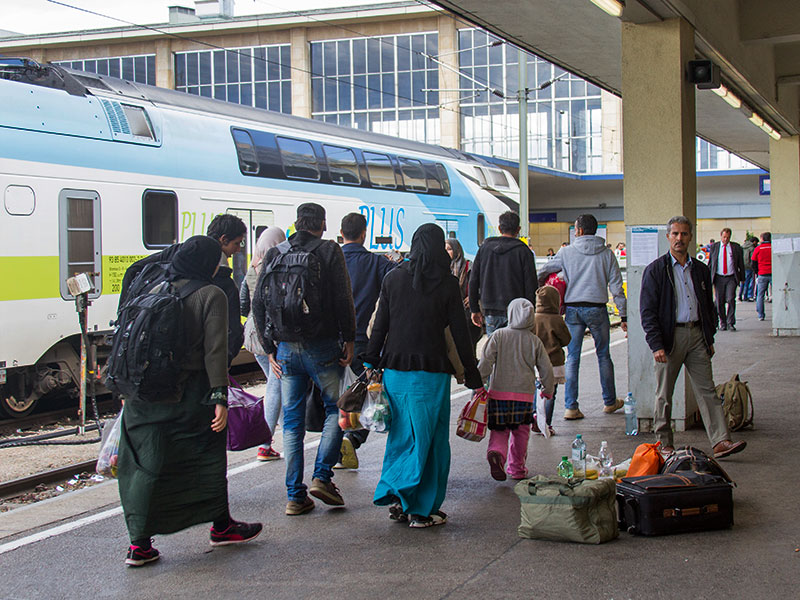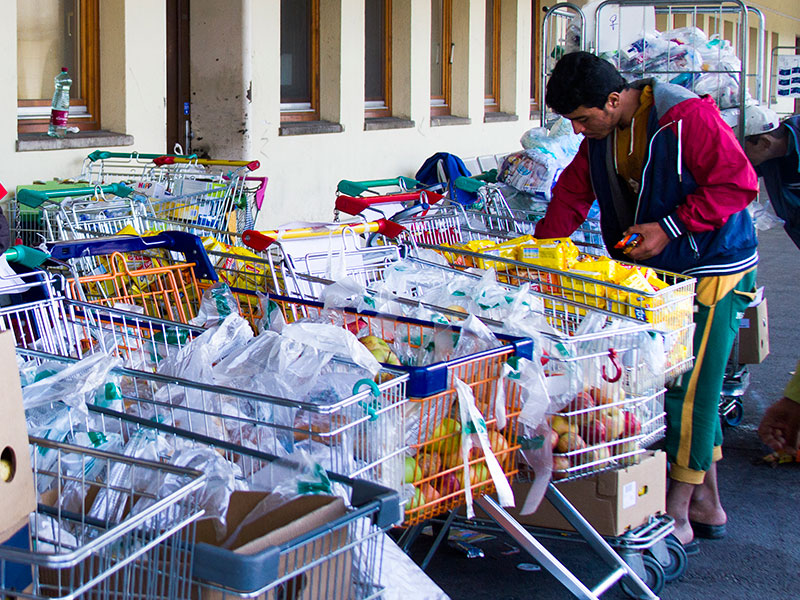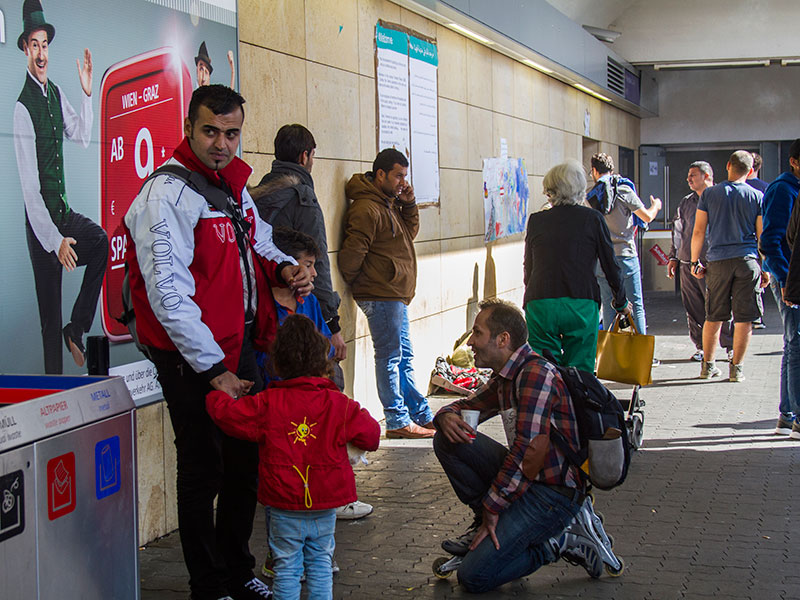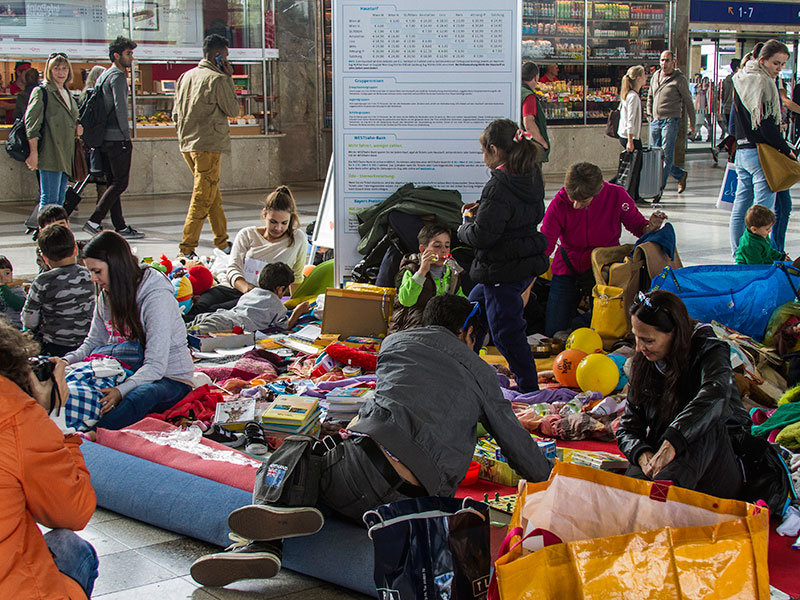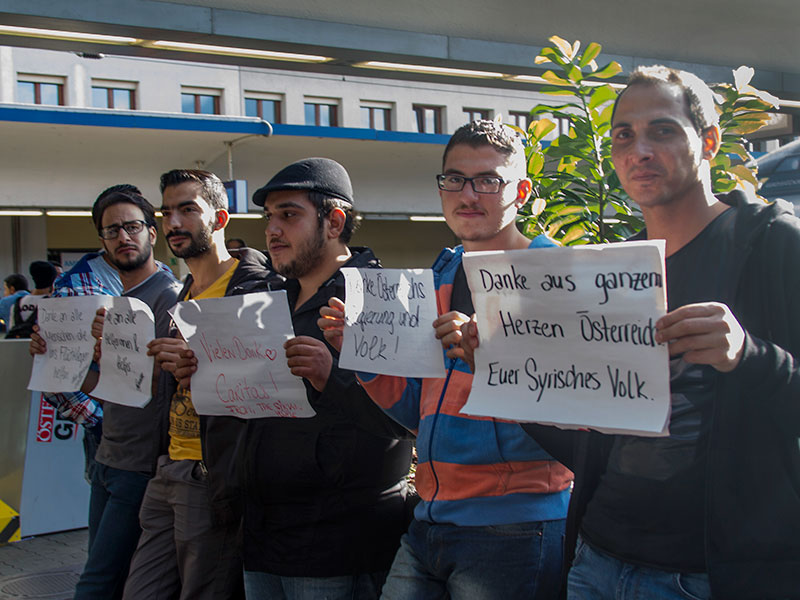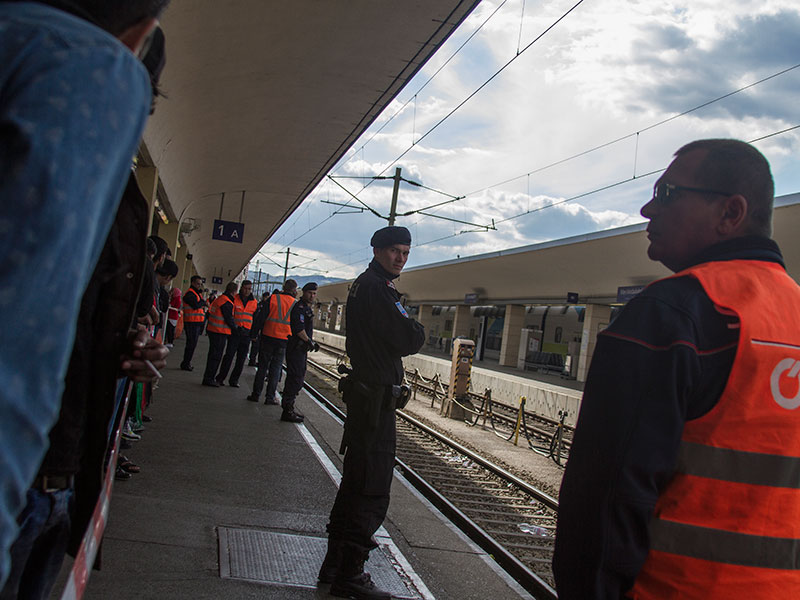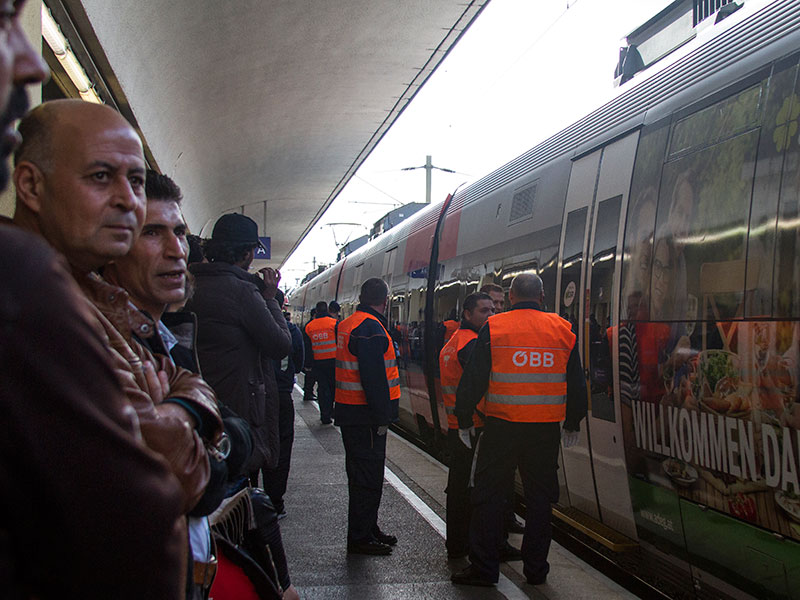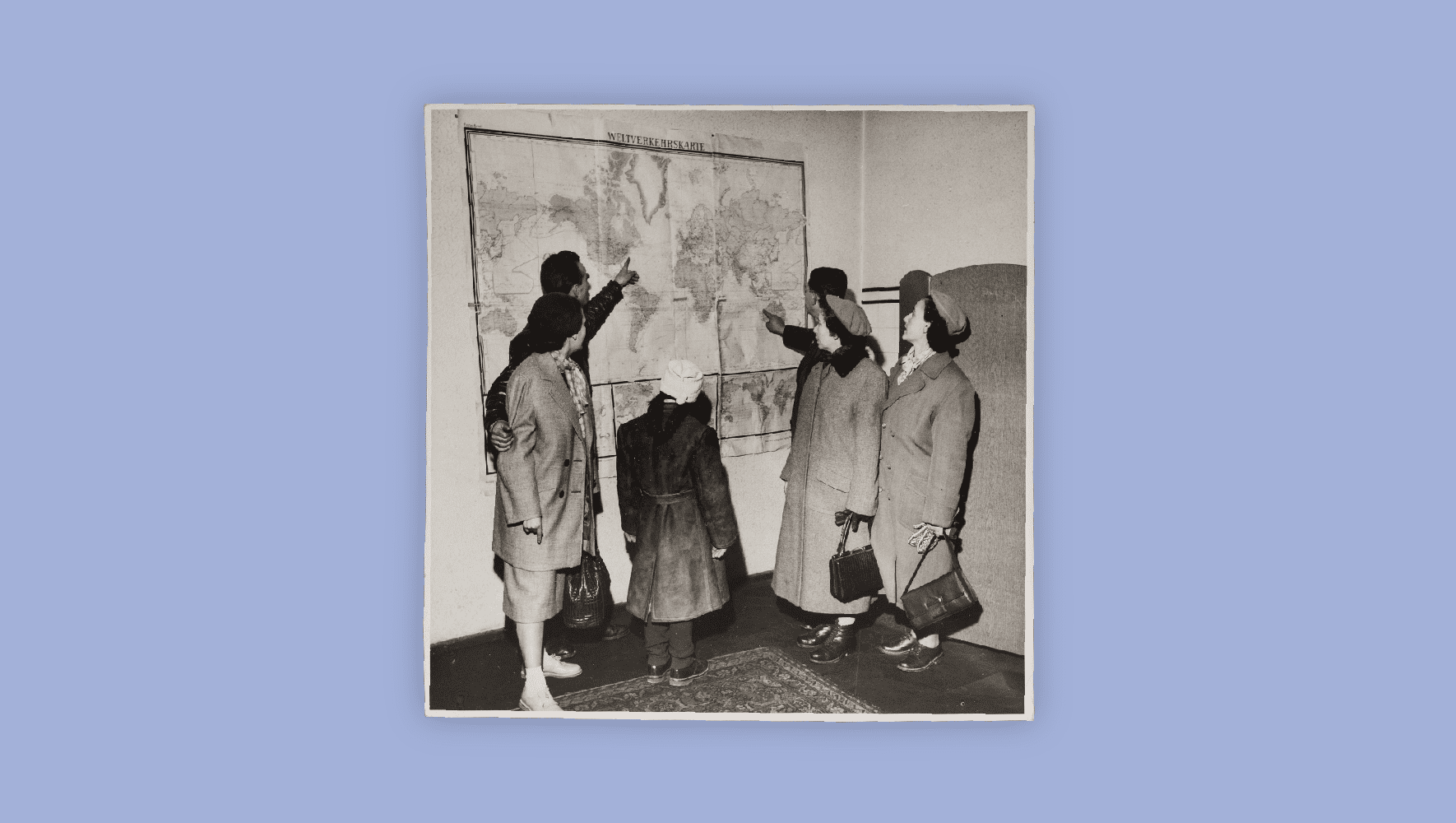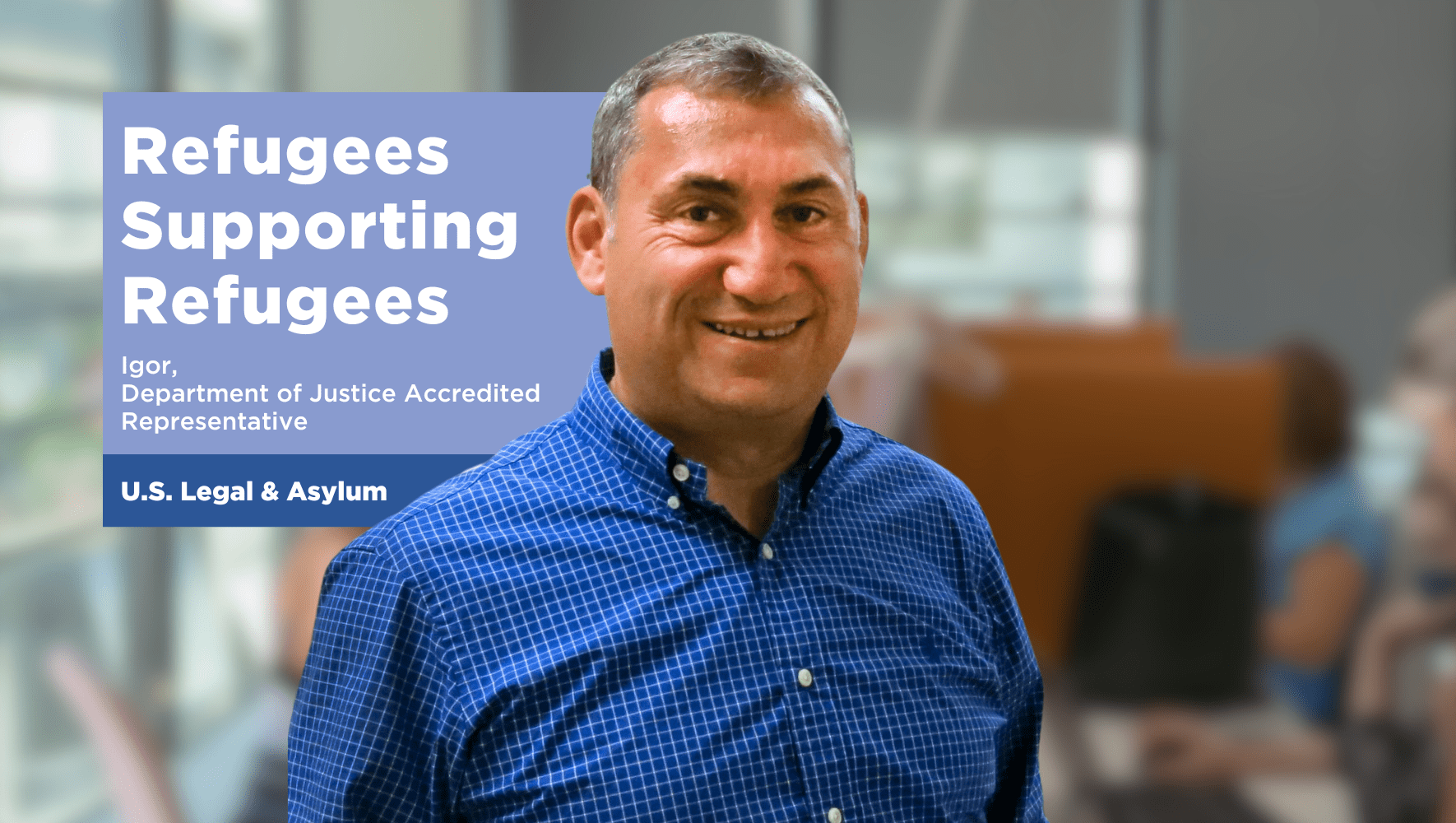Slideshow: The Refugee Crisis, A Dispatch from Vienna
By Emily Russ, HIAS/RSC Austria Director
Sep 10, 2015
I walked into the Westbahnhof train station and nothing appeared to be different. Tourists wheeled their bags past Starbucks and perfume shops, seemingly oblivious to the stress and confusion just one level above and below them.
Meanwhile, thousands of refugees have been transiting through Vienna’s train depots over the past week and many thousands more are expected. I visited Westbahnhof and Hauptbahnhof, Vienna’s other major train hub, on Tuesday to get a sense of the situation and how HIAS can help the influx of refugees.
As I looked on I could see that the Viennese have been exceptionally generous, offering donations of food, money, clothing and time. In fact, so much food has been collected that many donors have been turned away. I hope that this enthusiasm to help can be sustained through the fall, as it is much-needed.
At each train station I was joined by two Arabic and one Farsi speaking staff from the HIAS Vienna team. We volunteered with a local organization to help with interpretation and answer refugees’ questions. Over the course of an afternoon, we spoke with and assisted refugees who had arrived in the morning. Towards the end of the day, another train arrived with several hundred refugees and we continued our work.
All the refugees I spoke to were coming from Syria or Iraq, and included numerous Kurds. There were also Afghans and Eritreans. Everyone had come through Turkey, Greece, Macedonia, Serbia and Hungary before finally getting to Austria. Several shared that their experience along the way, especially in Hungary, had been traumatic, but spoke appreciatively of the help they received in Serbia and Macedonia.
None of the families I spoke with intended to stay in Austria. In fact, only about 300 refugees so far (out of thousands) have remained in Austria. The families I met were all hoping to join family and friends in the Netherlands, Finland and Sweden. Interestingly, despite news reports indicating that most refugees hope to get to Germany, no one I spoke with expressed any interest in remaining in that country.
When the refugees arrived, the scene was chaotic. While many stocked up on water and bananas, the first priority for many was to get local SIM cards for their mobile phones. Most of the questions we fielded related to train schedules and how to get to their final destination. We observed two trains leaving for Germany, each with a certain number of seats designated - at no cost - for Syrian refugees.
I was particularly struck by the number of small children I saw. While it is true that many single men are among the refugees, the number of large, extended families was very surprising, particularly because the journey is long and dangerous.
Late in the afternoon I spoke with four Syrian brothers from Aleppo who were traveling with their mother, wives and small children. They began their journey two weeks ago and are hoping to get to Sweden soon. The brothers included a sculptor, a poet and a firefighter. We helped them get on the correct train to Salzburg, getting them that much closer to family in Sweden and to the dream of a new life. Before they departed, we exchanged email addresses and I hope to hear of their safe arrival in their final destination soon.
Tuesday was a day I will remember for a long time. I was very encouraged by the local hospitality of the Viennese, my own staff’s determination to volunteer their help (and to continue to do so as long as we are needed), and the determination of the refugees. But what sticks in my mind most clearly as I conclude writing this dispatch is the 12-year-old boy I met, who was traveling completely alone to the Netherlands to be with his brother. His parents remained in Syria, unable to leave. We helped him and his friends find the train to Germany. As the mom of an 11 year old boy, I just can’t imagine.
Emily Russ is the director of HIAS in Austria, which manages the Resettlement Support Center, a project of the U.S. Government responsible for resettling Iranian religious minorities to the U.S.
